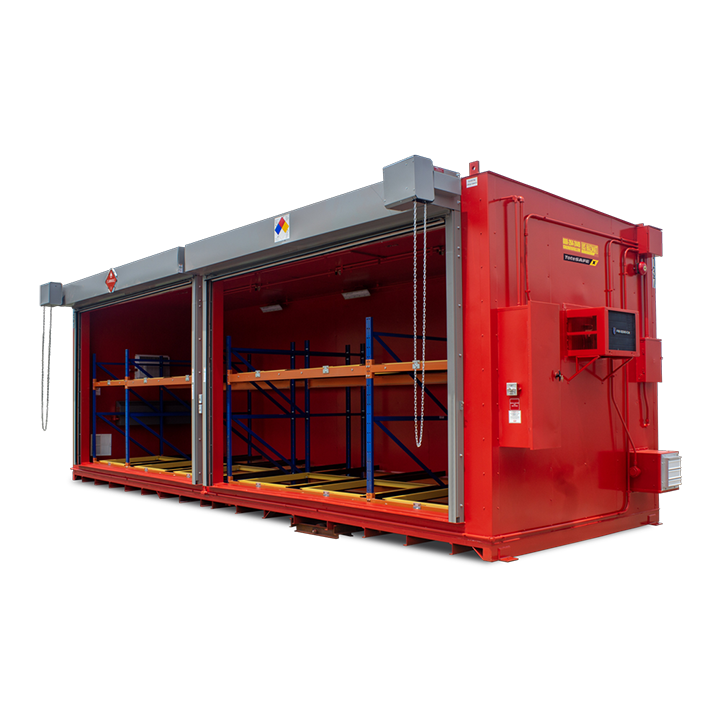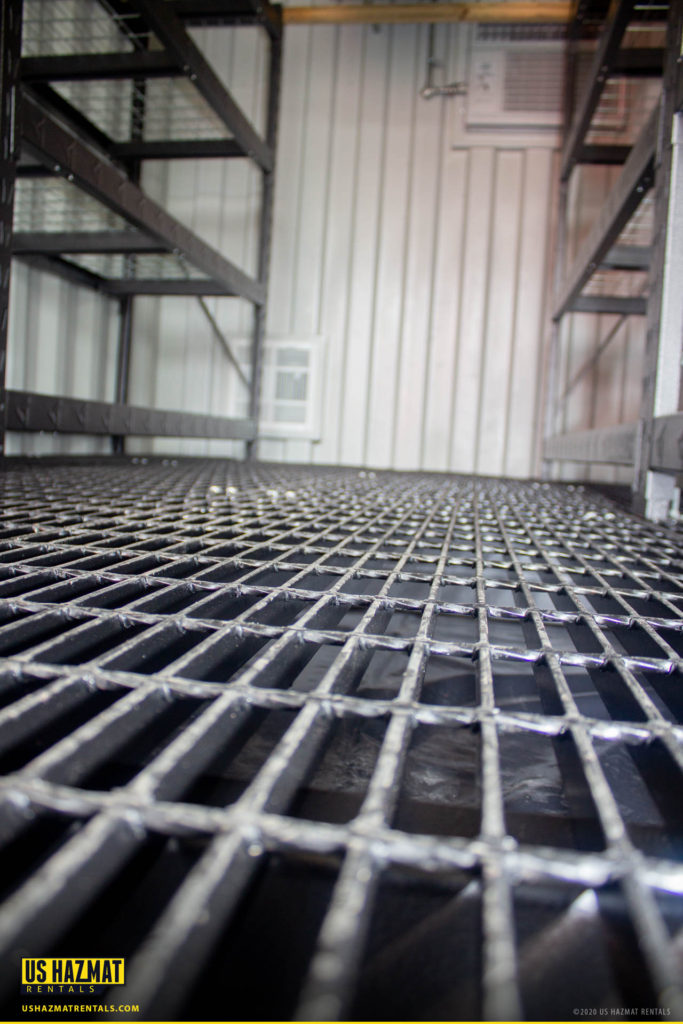Failure to invest in compliant temporary pesticide storage can cause irreparable damage from the roots up. Pesticides are complex chemical compounds used commonly to eradicate damage from insects, fungi, rodents and invasive flora. More than 100 different types of pesticides can be found on the market with various uses and countless associated risks. With spring rapidly approaching, many small-scale and commercial farms will look to stock-up on large quantities of pesticides to proactively protect crops prior harvesting. Because short-term inventories can be large and difficult to manage, added compliance may be necessary for existing storage areas. U.S. Hazmat Rentals can provide temporary compliant pesticide storage when volume is high before returning the unit to us when finished. Our pesticide storage lockers are ideal for agriculture, pest control, golf courses, and landscaping enterprises.
Temporary Pesticide Storage Prevents Fires, Accidental Leaks
There’s a time for every season. There’s a time to plant, grow, and reap what we sow. For agricultural producers, the time for compliant pesticide storage is now. Preparation and foresight are close companions for vigilant farmers looking to maximize each seasonal crop yield. Procrastination and failure to protect vulnerable crops today could mean the difference between a bonanza or bust during harvest. Pesticides are classified as highly flammable chemicals by OSHA due to their high solvent content by volume. Even fertilizer components can become toxic if left to decompose and release toxic vapors into the atmosphere.
How to Properly Store Pesticides?

According to the U.S. Environmental Protection Agency, compliant pesticide storage includes placing these dangerous chemicals in a well-ventilated chemical storage building. Pesticides should never be stored in proximity to bromine, ammonia, acetylene, butane, and other petroleum gases. Because of the ubiquity of accelerants and fuels necessary for maintaining farm equipment, such as combines and tractors, the temptation to store these chemicals with pesticides can be overwhelming but often disastrous. Our fire-rated chemical storage lockers can provide affordable seasonal protection for pesticides in small portable containers, such as 55-gallon drums. Roll-up doors and pushback racking allow for the easy storage and retrieval of drum containers without interrupting your farm’s daily operations from sun-up to sun-down.
Pesticide Labeling
Although specific pesticide storage regulations vary by state, there is much overlap in how states dictate compliant pesticide storage. Many state regulations require pesticides to be stored to prevent leaking and facilitate inspection. No formulated pesticides should be stored in unlabeled containers. All container labels must provide legible and concise language alerting staff of the chemical’s potential risks. Furthermore, this label should prominently feature the common chemical name, percentage of active ingredient, EPA registration number, signal word and classification. Farmers and agricultural producers must also give special attention to where pesticides are stored. Pesticides should never be stored in a manner that could cause contamination of tobacco, other pesticides, seeds or fertilizers. Volatile chemicals should always be stored under secured locks to ensure safe handling by authorized personnel and to ensure access to the storage area is restricted to children.
EPA Secondary Spill Containment
Regardless of your anticipated pesticide volume, you should always check both local, state and federal guidance to ensure compliance. Every year, agricultural providers find themselves on the receiving end of hefty civil penalties from the EPA for noncompliant pesticide storage that results in environmental degradation and contamination. In July 2021, an Oregon company agreed to pay a “$65,248 penalty for violations of federal pesticide handling and storage requirements at its storage and retail facilities in Umatilla, Oregon and Moreland, Idaho.” An inspection of the facility revealed a “12-inch hole in the floor of the facility’s containment structure, which would have allowed any liquid spilled on the warehouse floor to contaminate the ground underneath the warehouse,” according to the EPA.
“Pesticides facilities have a responsibility to ensure their products are safely stored so that the people working there and living nearby are not exposed to potentially dangerous chemicals,” said Ed Kowlaski, Director of EPA Region 10’s Enforcement and Compliance Assurance Division.
https://www.epa.gov/newsreleases/simplot-pays-65k-epa-penalty-pesticides-violations
Don’t become another statistic and unwanted headline that can drive away potential clients or elicit criticism from the communities you serve. In addition to fire suppression and climate control systems, our fire-rated chemical storage lockers can also safeguard against inadvertent leaks. Each fire-rated pesticide storage locker is outfitted with a large sump that sits beneath continuous steel-grated flooring. In the event of a spill, the pesticide or dangerous chemical will fall through the flooring and into the sump where it can be safely extracted. This will prevent dangerous chemicals from escaping into nearby storm drains and water streams. (See photo below). As we mentioned before, our high volume pesticide storage lockers are an affordable solution to a temporary and seasonal storage dilemma. Why buy when you can rent at a fraction of the price? Contact us today for a free consultation.







